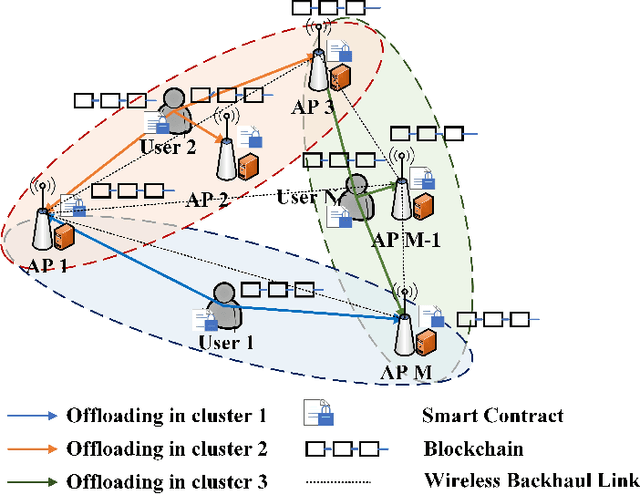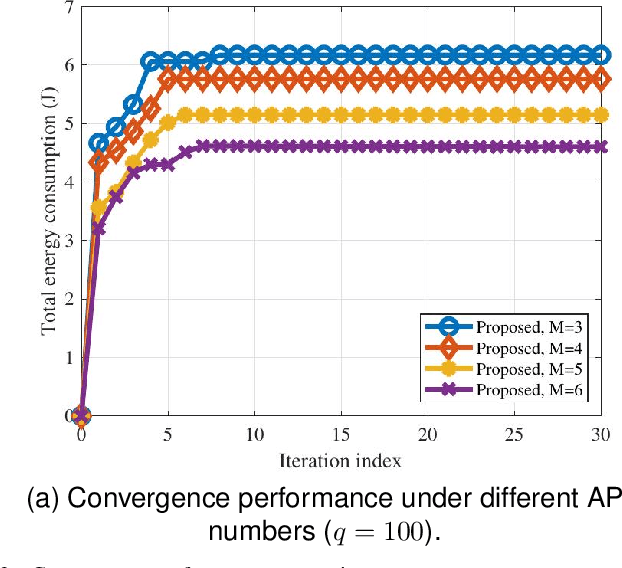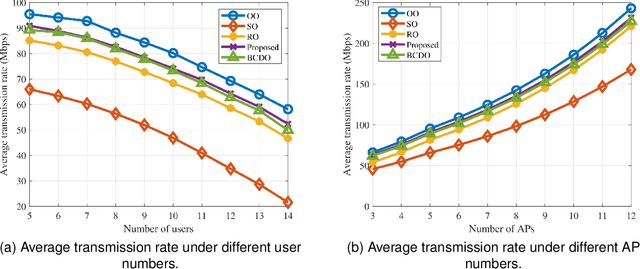Zhuojia Gu
Energy-Efficient Blockchain-enabled User-Centric Mobile Edge Computing
Feb 21, 2023



Abstract:In the traditional mobile edge computing (MEC) system, the availability of MEC services is greatly limited for the edge users of the cell due to serious signal attenuation and inter-cell interference. User-centric MEC (UC-MEC) can be seen as a promising solution to address this issue. In UC-MEC, each user is served by a dedicated access point (AP) cluster enabled with MEC capability instead of a single MEC server, however, at the expense of more energy consumption and greater privacy risks. To achieve efficient and reliable resource utilization with user-centric services, we propose an energy efficient blockchain-enabled UC-MEC system where blockchain operations and resource optimization are jointly performed. Firstly, we design a resource-aware, reliable, replicated, redundant, and fault-tolerant (R-RAFT) consensus mechanism to implement secure and reliable resource trading. Then, an optimization framework based on alternating direction method of multipliers (ADMM) is proposed to minimize the total energy consumed by wireless transmission, consensus and task computing, where APs clustering, computing resource allocation and bandwidth allocation are jointly considered. Simulation results show superiority of the proposed UC-MEC system over reference schemes, at most 33.96% reduction in the total delay and 48.77% reduction in the total energy consumption.
Horizontal and Vertical Collaboration for VR Delivery in MEC-Enabled Small-Cell Networks
Sep 05, 2021


Abstract:Due to the large bandwidth, low latency and computationally intensive features of virtual reality (VR) video applications, the current resource-constrained wireless and edge networks cannot meet the requirements of on-demand VR delivery. In this letter, we propose a joint horizontal and vertical collaboration architecture in mobile edge computing (MEC)-enabled small-cell networks for VR delivery. In the proposed architecture, multiple MEC servers can jointly provide VR head-mounted devices (HMDs) with edge caching and viewpoint computation services, while the computation tasks can also be performed at HMDs or on the cloud. Power allocation at base stations (BSs) is considered in coordination with horizontal collaboration (HC) and vertical collaboration (VC) of MEC servers to obtain lower end-to-end latency of VR delivery. A joint caching, power allocation and task offloading problem is then formulated, and a discrete branch-reduce-and-bound (DBRB) algorithm inspired by monotone optimization is proposed to effectively solve the problem. Simulation results demonstrate the advantage of the proposed architecture and algorithm in terms of existing ones.
 Add to Chrome
Add to Chrome Add to Firefox
Add to Firefox Add to Edge
Add to Edge